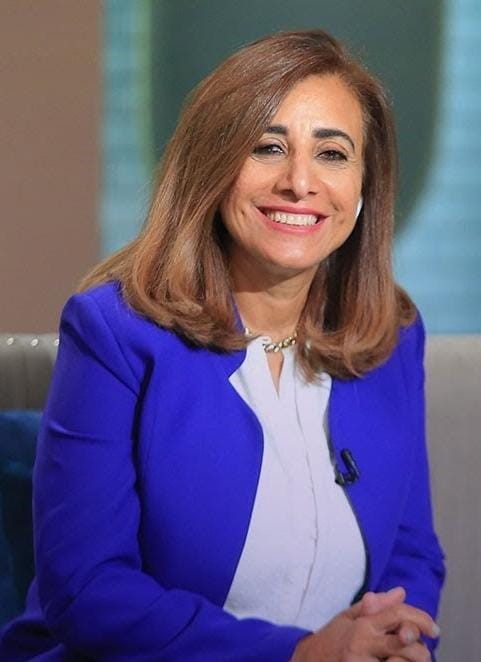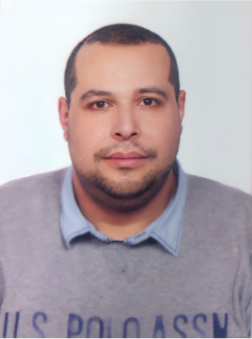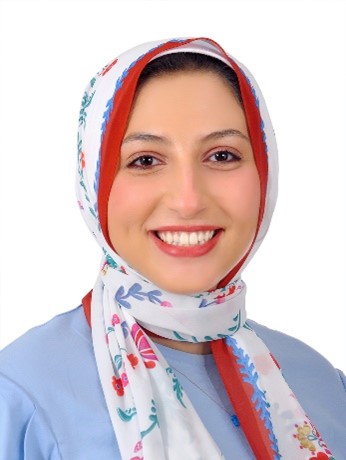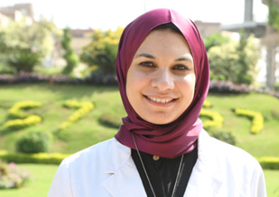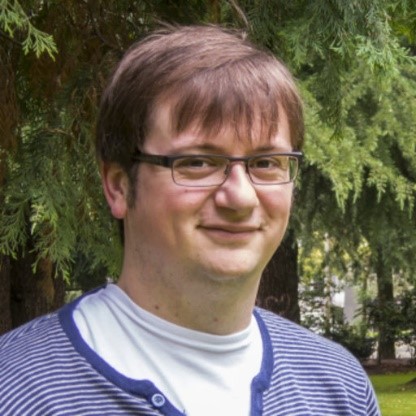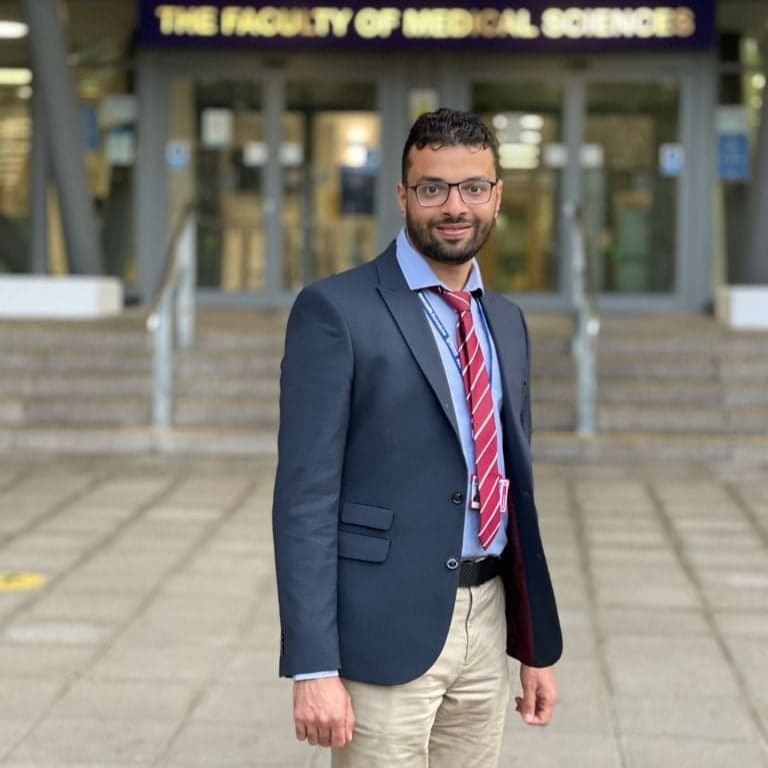Advisor to the Minister for Digital Community Development, Huda is the Sustainable Development and Strategic Management Expert and a Member of the Presidential Advisory Council for Community Development. With a successful track record spanning over 20 years, she was able to manage several projects that contributed to the achievement of global development goals.
Archives: Doctors
Ahmed Farag
Ahmed earned his bachelor’s degree at the Faculty of pharmaceutical sciences from Cairo University. He had started working in many areas as an IV mixing and sterile area pharmacist, inpatient clinical pharmacist, and outpatient dispensing pharmacist at Children’s Cancer Hospital (CCHE) 57357. Then, he was promoted to supervisor at the Personalized Medication Management Unit (PMMU). In 2022, Ahmed completed his master’s degree in business administration from the Arab academy for science, technology, and maritime transport. Moreover, Ahmed had taken a biotechnology Diploma from Bani Sweif University. In addition, Ahmed is a Certified preceptor from Colorado university.
Habiba Ihab
Habiba earned her bachelor’s degree at the Faculty of Biotechnology from October University for Modern Sciences and Arts. She graduated as the second batch among 200 students with a 3.94 CGPA. Also, she received a certificate of achievement in recognition of her exceptional academic achievement in earning a CGPA of 4 from the University of Greenwich. After graduation, Habiba started working as a pharmacogenetics lab specialist at the Personalized Medication Management Unit (PPMU) at Children’s Cancer Hospital (CCHE) 57357. Habiba is interested in human genetics and molecular genetics research, especially molecular profiling of human genomes for better health outcomes.
Dr. Dalia Makhlouf
Dalia Osama Makhlouf is the Head of the Pharmacy Specialties and Pharmacogenetics unit at Children’s Cancer Hospital Egypt (CCHE) -57357. She is a clinical pharmacist graduated from Cairo University. She got her master’s in Biochemistry from Al Azhar University. Now she is a Ph.D. candidate. She is a Certified Preceptor from Colorado University and Clinical Pharmacogenetics Implementation Consortium (CPIC) member.
Dr. Vangelis Manolopoulos
Vangelis Manolopoulos is a distinguished member of the faculty at Democritus University of Thrace Medical School in Alexandroupolis, where he has been shaping the future of pharmacology since 1998. Holding the prestigious titles of full professor of Pharmacology, Pharmacogenomics & Precision Medicine, he leads both the department of Pharmacology at DUTH and the Clinical Pharmacology Unit at the Academic Hospital of Evros with notable expertise. His role extends to directing the Masters’ Course on Clinical Pharmacology and Therapeutics at DUTH, further showcasing his commitment to advancing medical education and research.
Manolopoulos embarked on his academic journey with a Ph.D. in pharmacology from the Medical School of Patras University in 1991, with part of his doctoral research conducted at the University of Groningen, Netherlands. His postdoctoral pursuits took him to the Milwaukee Clinical Campus of the University of Wisconsin, USA, and later to the Katholic University’s Medical School in Leuven, Belgium, enriching his expertise in physiology.
Since 1999, Manolopoulos has been imparting knowledge on basic and clinical pharmacology to medical students, and in 2001, he pioneered a course in Pharmacogenetics, marking one of the first such courses to be integrated into an undergraduate medical curriculum globally. His scholarly contributions exceed 150 research publications, with his research primarily focusing on the pharmacogenomics and epigenomics of drugs for treating cardiovascular diseases, diabetes, and psychiatric conditions. Additionally, he has a profound interest in cardiovascular disease pathophysiology and endothelial cell biology.
Manolopoulos’ leadership extends beyond academia; he currently chairs the Greek National Organization for Medicines (EOF) and has held significant positions such as the Principal Investigator for Greece in the EU-PACT and Chair of the European Society for Pharmacogenomics and Personalized Therapy (ESPT). His influence also reached the Greek Society for Pharmacology and Clinical Pharmacology and the European Association for Clinical Pharmacology (EACPT). As an associate editor and member of executive editorial boards for several prestigious journals, he contributes to the broader scientific dialogue. His expertise is frequently sought in national and international grant proposal evaluations, particularly within EU funding programs, highlighting his role in shaping the future of pharmacology and personalized medicine
Dr. Mónica Meijon
MÓNICA MEIJÓN is a Plant Physiology researcher and holds a PhD in Biology. After 2 year of postdoctoral experience at GMI (Vienna-Austria) and 3 at SERIDA (Spain), obtained a “Ramón y Cajal” post at the University of Oviedo where currently she is Associate Professor. She has contributed as researcher in numerous projects focusing on the last years in identifying regulatory networks involved in stress response. So far, she has published more than 38 research papers in international journals.
Dr. Jesús Pascual
Plant Physiology, University of Oviedo. I did my PhD at the University of Oviedo under the supervision of Dr. María Jesús Cañal and Dr. Luis Valledor. During my PhD, I studied the response and adaptation of the tree species Pinus radiata to UV radiation from a systems biology perspective. In 2016, upon graduation, I started as a postdoctoral researcher in Dr. Saijaliisa Kangasjärvi´s group at the University of Turku, where I have been funded by the Academy of Finland since 2019. I study the role of post-translational regulation in retrograde signalling and its importance for stress adaptation.
Dr. Monica Escandon
After finishing my PhD, I continued my research at the National Museum of Natural Sciences of Spain (CSIC), the University of Lausanne (Switzerland), and the Pyrenean Institute of Ecology (CSIC). Since 2019, I am placed at the IMIB Research Unit of Biodiversity (UO, CSIC, PA).
Dr. Luis Valledor
Associate Professor Department of Organisms and Systems Biology, Ph.D.
Dr. Tarek Mamdouh
Tarek Abdelghany is an Egyptian Pharmacist, Lecturer, and Researcher, born in Cairo, Egypt in 1989. Tarek has more than 10 years of teaching and research experience across different Universities in Egypt and the UK.
Tarek is one of the executive members of the Medical Consultancy Council of Hayah Kareema in Egypt (Egyptian Presidential initiative). He is involved in three different multidiscipline research projects related to Drug Discovery and Targeting and Environmental Toxicology “Collaboration between scientists from Newcastle University, Cairo University, the University of Aberdeen, Cambridge University, Imperial College, Northumbria University, Dresden University and Freeman Hospital”.
Tarek joined Newcastle University in September 2017 for his PhD studies (awarded in 2021). During his time at Newcastle, he worked in research and teaching across Biomedical and Pharmacy Schools, published several papers, was awarded a £30K ICURe grant, initiated several successful international research collaborations, and was nominated by students for Educational awards for two academic years. He was awarded the UK Higher Education Associate Teaching Fellowship (D1) in 2019 and received the FHEA (D2) recognition (June 2021).
Tarek graduated with a bachelor degree in Pharmaceutical Sciences from the Faculty of Pharmacy, Cairo University, Egypt in 2011 (ranked amongst the top 100 schools of pharmacy worldwide) and was one of the top-ranked students in his cohort. He was appointed to the position of Pharmacology Lecturer/Research Assistant (2012-2017) and gained his masters in Pharmacology with honours in 2015. He attended various training programmes and internships across several universities and pharmaceutical companies in many countries. Tarek is one of the Alumni of the National Training Academy (NTA) in Egypt. He graduated from the Egyptian Presidential Leadership Programme (PLP) in 2016 and joined the Egyptian Executive Presidential Leadership Programme (EPLP) in 2017.

